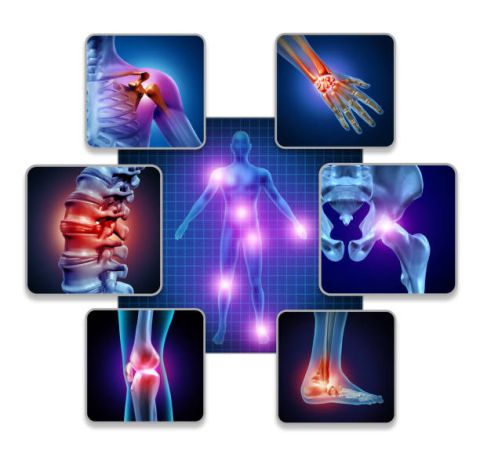What Are the Key Differences Between Muscle Stiffness and Joint Pain?
A Personal Experience with Pain
It began on a cold morning when I pushed myself a bit too hard in my exercise routine. The next morning, I woke up with this strange tightness in my legs. I shrugged it off as normal soreness, but since the stiffness continued, I began to wonder—could this be something more? Around the same period, my mother also complained about her knee pain worsening, and she found it hard to move around. That made me wonder: What is the difference between muscle stiffness and joint pain, and how do we manage them the right way?
Understanding Muscle Stiffness
Stiffness of muscle is when muscles are tight and movement hurts or becomes uncomfortable. It usually happens because of overuse, inadequate stretching, or excessive rest. Stiffness is not the same as muscle soreness, which is accompanied by a dull soreness. Stiffness is more of a limitation in range of motion.
One of the most frequent causes of muscle stiffness is overexercise with inadequate warm-up or cool-down. Dehydration, stress, poor posture, and cold weather are some of the other contributing factors. Muscle stiffness can spontaneously resolve by resting, staying hydrated, and performing gentle stretches, but medication can be prescribed to hasten recovery in other situations.
Talking of medication, I recall my uncle suffering from severe muscle stiffness after a long car drive. His physician prescribed zerodol mr tablet uses, such as relieving musculoskeletal conditions-induced muscle spasms and stiffness. He felt much better after a couple of doses, which goes to show that proper treatment can work wonders.
Identifying Joint Pain
Joint pain, however, is a distinct type of pain. It tends to be deep and throbbing, typically with swelling, heat, or redness. Unlike stiffness in muscles, which becomes better with use, joint pain may become worse with use and even remain constant at rest.
My mother's knee ache was found to be osteoarthritis, a degenerative condition that erodes the cartilage in between joints. Other reasons for joint pain are rheumatoid arthritis, gout, bursitis, and even infections. Joint pain can be variable, with some individuals having only mild pain while others have very severe inflammation that restricts mobility.
Whereas muscle stiffness can usually be treated with uncomplicated home remedies, joint pain at times demands long-term management. Anti-inflammatory drugs, physical therapy, and in extreme instances, surgical procedures might be required to restore regular function.
Key Differences Between Muscle Stiffness and Joint Pain
| Feature | Muscle Stiffness | Joint Pain |
|---|---|---|
| Location | Affects muscles | Affects joints |
| Type of Pain | Tightness, restricted movement | Aching, sharp, or throbbing pain |
| Causes | Overuse, dehydration, poor posture | Arthritis, inflammation, injury |
| Aggravation | Improves with movement | Can worsen with movement |
| Treatment | Rest, hydration, stretching, muscle relaxants | Anti-inflammatory meds, therapy, lifestyle changes |
Managing and Preventing Muscle Stiffness
If you are prone to muscle stiffness frequently, try these tips:
● Warm up and cool down properly prior to any form of physical activity.
● Hydrate well in order to ensure that muscles continue to function optimally.
● Sit and stand with good posture.
● Massage the muscles involved to encourage blood flow.
● Take regular breaks during periods of prolonged inactivity to avoid stiffness.
● Use muscle relaxants as needed under medical care.
How to Treat and Prevent Joint Pain
Joint pain needs to be treated somewhat differently, particularly if it's ongoing. This is what you can do:
● Be at a healthy weight to put less strain on joints.
● Perform low-impact exercise such as swimming or yoga.
● Use heat or cold treatment to ease pain.
● Use anti-inflammatory drugs if necessary, as directed by a physician.
● Make dietary adjustments that incorporate foods high in omega-3 fatty acids and antioxidants.
● Use natural treatments such as turmeric, ginger, and essential oils.
When to Visit a Doctor
Although occasional joint or muscle stiffness is not concerning, you should consult a physician if:
- The pain continues for weeks.
- There's extreme swelling or redness of the joints.
- Movement is highly limited.
- Pain develops suddenly and is severe.
- Over-the-counter drugs don't appear to alleviate it.
Avoiding chronic pain may result in permanent mobility impairment, so it's always advisable to treat it early.
Wrapping Up
Through my personal experience and my mother’s journey with joint pain, I’ve realized how important it is to understand the root cause of discomfort before jumping to solutions. What works for one may not work for another, which is why consulting a healthcare professional is crucial.
For those seeking to relieve joint pain naturally, home remedies for joint pain such as warm compresses, turmeric milk, and light stretching may prove helpful. However, if medication is unavoidable, always consult a physician for advice on the best course of treatment.
For quality medicines and supplements sent directly to your doorstep, you can visit online pharmacies, which provide reliable and economical healthcare products. Taking the right steps today can guarantee improved mobility and pain-free living in the future!
